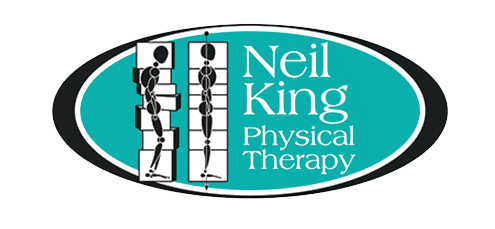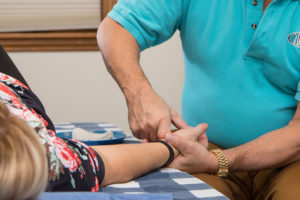Going through an elective surgery, such as a total joint replacement or spinal fusion, can be a very challenging experience. Below are some common questions with recommendations to help you decrease pain, improve range of motion, and maximize function in a safe and efficient manner.

1. Just wake up following your procedure? Time to start moving!
- If you have just undergone a total knee for example, it is important to start moving your toes, feet, and ankles (shoulders move hands, wrists, and fingers). Do not be alarmed as this may be difficult. This is completely normal. The anesthesia and nerve block may still be in effect depending on the time of your procedure. Moving your feet/ankles will help increase blood flow, reducing edema, and limiting chances for clots to form in your surgical extremity. So, remember to wiggle away!
2. Why am I in so much pain?
- This one is easy. YOU JUST HAD SURGERY! It is completely normal to experience moderate to high levels of pain (this is why you are prescribed pain medication). The procedure itself is very traumatic, as multiple layers of soft tissue, cartilage, and bone are cut, stretched, and/or replaced. It is important to rest but continue to move your surgical extremity as often as possible while abiding by your surgeon’s protocol.
3. How long until I feel back to normal?
- A very common question with a very disappointing answer. IT DEPENDS. On average, a year is a good ballpark estimate as there are several variables to consider. Most total knee patients are “back to normal” within a few months, but may experience achiness/stiffness in the morning, or following strenuous activities. There are many factors that come into play with rehab following surgical interventions. Here are a few:
- Each surgeon has a different protocol aimed at providing you with the best outcomes for how they perform surgery.
- Joint integrity. It is important to develop a plan with your surgeon and PT to determine when the joint will need the replacement. You do not want to replace the joint too soon, but also do not want to wait until you are in so much pain that you are unable to put any weight through it.
- The stronger you are going into surgery, the better your outcome. Make sure to speak with a PT prior to your surgical date to develop a plan to maximize your potential!
- Nutrition. What, and how much, you put into your body determines how fast you will recover. The healing process takes several months to a year to occur. For the body to efficiently repair the trauma, proper water and macro nutrient (protein, carbs, and fat) intake is vital. Again, your PT can help with this in addition to your physician and/or dietician.




